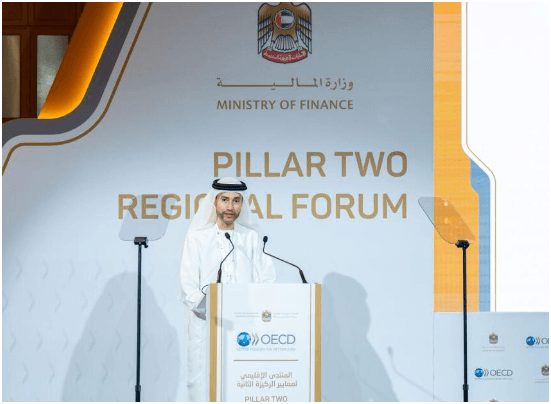UAE Tax Update: Understanding the Global Minimum Tax Implementation
As the global economic landscape continues to evolve, the United Arab Emirates (UAE) finds itself at a pivotal juncture with regards to taxation policies. Recent developments in international tax regulations, particularly the implementation of a global minimum tax, have spurred significant discussions and actions within the UAE’s fiscal framework. This article delves into the nuances of these changes and their implications for businesses and individuals in the UAE.
The concept of a global minimum tax aims to address tax evasion, profit shifting, and other forms of fiscal manipulation by multinational corporations. Spearheaded by the Organization for Economic Cooperation and Development (OECD), this initiative seeks to establish a baseline tax rate that all countries agree upon, thereby minimizing the opportunities for companies to exploit discrepancies in tax jurisdictions.
For the UAE, a country known for its favorable tax environment, the introduction of a global minimum tax presents both challenges and opportunities. Historically, the UAE has attracted businesses and investors with its tax-free status and low corporate tax rates. However, with the advent of the global minimum tax, the country faces the task of striking a balance between maintaining its attractiveness as a business hub and complying with international tax standards.
One of the key considerations for the UAE is the impact of the global minimum tax on its free zones. These designated areas, offering various incentives such as 100% foreign ownership and exemption from corporate taxes, have played a crucial role in driving economic diversification and foreign investment in the country. With the implementation of the global minimum tax, questions arise regarding the tax treatment of companies operating within these free zones and the potential adjustments needed to align with international norms.
Furthermore, the UAE’s commitment to transparency and compliance with international standards, as evidenced by its inclusion in the OECD’s list of jurisdictions that have implemented the Common Reporting Standard (CRS), underscores the country’s willingness to adapt to evolving global tax regulations. By demonstrating its commitment to combating tax evasion and ensuring financial transparency, the UAE aims to enhance its reputation as a reputable jurisdiction for business and investment.
However, navigating the complexities of the global minimum tax requires careful consideration of various factors, including the impact on the UAE’s double taxation treaties, transfer pricing regulations, and domestic tax laws. Moreover, it must collaborate with other countries and international organizations to establish mechanisms for enforcing and monitoring compliance with the global minimum tax regime.
From a practical standpoint, businesses operating in the UAE need to assess the implications of the global minimum tax on their tax planning strategies and financial projections. This may involve restructuring their operations, revisiting transfer pricing arrangements, and enhancing their tax compliance mechanisms to ensure alignment with international standards.
For individuals residing , the implementation of the global minimum tax may have implications for their personal finances, particularly if they have investments or assets overseas. It is essential for individuals to stay informed about the evolving tax landscape and seek professional advice to mitigate any potential risks or liabilities arising from these changes.
In conclusion, the UAE finds itself at a crossroads in its tax policy journey, as it grapples with the implications of the global minimum tax while striving to maintain its position as a leading business destination. By embracing transparency, collaboration, and proactive measures, the UAE can navigate these challenges and emerge as a responsible global player in the realm of taxation. As businesses and individuals adapt to these changes, the UAE’s resilience and agility will be critical in shaping its future as a dynamic and competitive economy on the world stage.
Stay up to date with every latest news-click here



